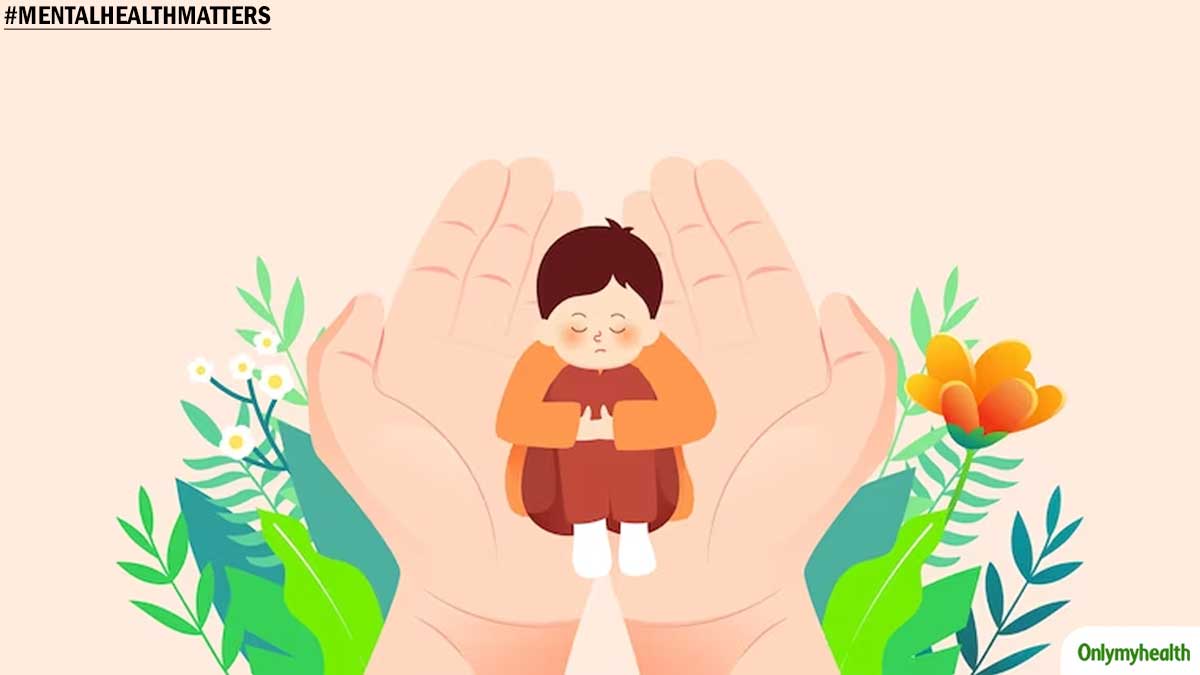
Mental health issues not only affect adults but can also affect children. They cause disturbances in thinking, emotions, mood, and behaviour, causing enormous suffering and affecting the individual’s day-to-day life, activities, and relationships. Like any age group, there is no single underlying cause for this condition in children. This week in OnlyMyHealth’s ‘Mental Health Matters’ series, we spoke to our expert Dr Chitra Shankar, Consultant - Developmental Paediatrics, Manipal Hospital, Old Airport Road, to understand the signs of mental health issues in children and how to manage them.
Table of Content:-

Dr Shankar said, “Anxiety disorders, phobias, social anxiety, depression, obsessive-compulsive disorders, oppositional defiant disorder, and eating disorders are commonly seen in children. These are complex conditions influenced by a combination of genetic, environmental, and individual factors.” According to the Indian Journal of Psychiatry, at any given moment, approximately 50 million children in India experience mental disorders, and this figure would rise even further if we included the adolescent population.
What Are The Risk Factors For Mental Health Issues In Children?

Dr Shankar listed the risk factors for mental health issues in children as follows:
- Family History: A family history of mental health disorders can increase the risk due to genetics and heritability
- Adverse Childhood Experiences: Experiences like abuse and neglect during childhood
- Chronic Medical Conditions: Conditions, such as chronic pain, cancer, and neurological disorders
- Chronic Stress: High levels of ongoing stress
- Coping Skills: A lack of coping skills and inadequate emotional regulation abilities
- Substance Use: Trying out drugs, alcohol, and tobacco at an early stage
- Childhood Conditions: Some childhood conditions like ADHD, poor academic performance, and Autism increase the risk of mental health issues
Also Read: Mental Health Matters: Expert Explains Impact Of Age On PTSD
Symptoms Of Mental Health Issues

Recognising the warning signs of mental health problems in children is an important aspect. These symptoms manifest as alterations in mood, behaviour, school performance, relationships, and even physical well-being. Parents need to stay vigilant and seek professional guidance when these symptoms persist for more than a few weeks without improvement. Dr Shankar listed the key signs that you should watch out for:
- Persistent Negative Emotions: Feelings of sadness, hopelessness, guilt, worthlessness, or frequent mood swings
- Excessive Worry: Excessive worrying and irrational fears or phobias
- Differences in Eating and Sleeping Habits: Changes in eating behaviours (overeating or undereating, resulting in weight fluctuations) and disruptions in sleep
- Loss of Interest: Diminished enthusiasm for previously enjoyed activities
- Aggressive Behaviour: Aggressive or irritable behaviour and frequent temper tantrums
- Unexplained Physical Complaints: Repeated complaints of headaches, stomach aches, changes in appetite, or unexplained weight loss.
- Academic Decline: A sudden drop in academic performance or refusal to attend school
- Fatigue: Suffering from low energy or chronic fatigue
- Social Avoidance: Avoidance of social situations
- Self-Harming Behaviors: Actions that result in harm to oneself, including self-cutting, discussing self-harm, or thoughts of suicide
- Regression: Regressive behaviours, such as bed-wetting or thumb-sucking
- Ritualistic Behaviours
- Inability to concentrate or think clearly
- Hair plucking behaviours
- Neglecting Personal Hygiene
Also Read: Mental Health Matters: Impact Of Excessive Screen Time On Mental Health And How To Manage It
How To Manage Mental Health Issues

To reduce the risk of developing mental health disorders and improve coping, several protective factors can be beneficial. Here are some expert-recommended expert tips:
- Strong Social Network: Building supportive friendships, family relationships, and nurturing peer interactions
- Healthy Family Relationships: Positive, nurturing, and stable relationships within the family and among peers
- Coping Strategies: Learning and practising effective coping strategies, such as problem-solving, stress management, and emotional regulation skills
- Positive Parenting: Positive, nurturing, and supportive parenting with clear communication and discipline
- Physical Well-being: Maintaining physical health through a balanced diet, regular exercise, and sufficient sleep
- Education and Skill Development: Access to education and skill development
- Financial Stability: Taking steps to ensure financial stability
- Community Engagement: Involvement in community activities and volunteering
- Timely Healthcare: Seeking help and healthcare when needed
Bottomline
Dr Shankar concluded, “Mental health disorders can affect all age groups from childhood to old age, both men and women and all socioeconomic groups. These conditions have a significant impact not only on the affected individuals but also on their loved ones, families, and society. We have to overcome the stigma associated with mental health disorders and seek help early. As a society, we have to prioritise both physical and mental health.”
[Disclaimer: This article contains information provided by a registered healthcare professional and is for informational purposes only. Hence, we advise you to consult your expert if you notice any symptoms of mental health issues in your children.]
Also watch this video
How we keep this article up to date:
We work with experts and keep a close eye on the latest in health and wellness. Whenever there is a new research or helpful information, we update our articles with accurate and useful advice.
Current Version